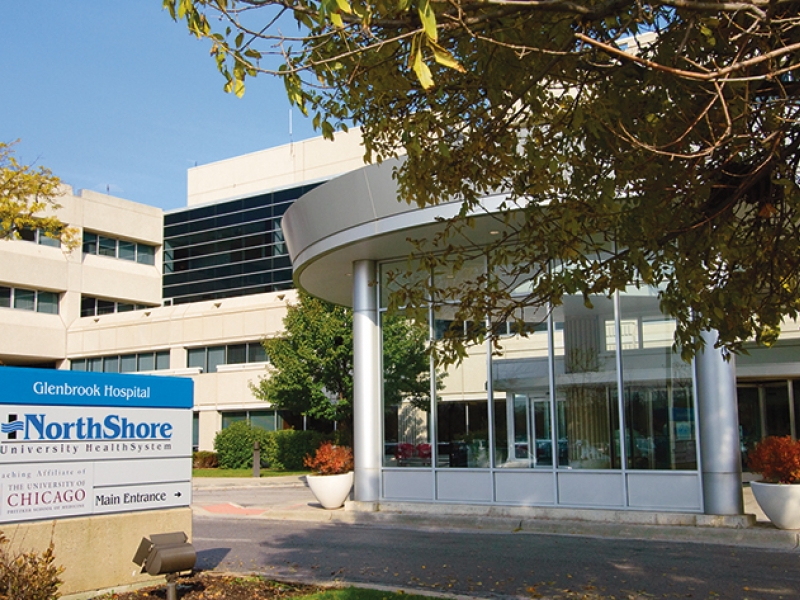
[ad_1]
After earning a handful of B and C letter grades for patient safety, NorthShore University HealthSystem’s Evanston and Glenbrook hospitals are now among the 43 safest hospitals in Illinois, according to the latest report by Leapfrog Group, a nonprofit focused on hospital safety. Rush University Medical Center, however, dropped from A to B for the first time in the history of the report.
NorthShore’s Evanston Hospital and Glenbrook Hospital have followed the same path in recent years, improving first from C to B and now from B to A, according to Leapfrog’s fall 2018 Hospital Safety Grades. The semiannual report measures patient safety at acute care hospitals nationwide—not including children’s hospitals.
“Their patient experience surveys show that patients are happier with them on measures that we know from research,” like communication about medicines, “are correlated with safety. They are showing improvement on patient satisfaction,” Leapfrog President and CEO Leah Binder said.
“These safety grades reflect the incredible work that is being done through our multi-year journey to establish NorthShore as a top performer nationally in the area of quality and patient safety,” health system President and CEO J.P. Gallagher said in a statement. “We’re making significant investments to elevate our quality, expand our reach and deliver exceptional experiences to our patients.” NorthShore’s other hospitals, Highland Park and Skokie, maintained A grades.
Of the 110 Illinois hospitals evaluated, 39 percent earned an A and 27 percent earned both Bs and Cs. Three hospitals earned a D and two earned an F. Illinois sits at No. 12, up from No. 15 in the spring, on Leapfrog’s state rankings list, which compares the number of “A” hospitals in a state with its total number of graded hospitals. Illinois was No. 26 this time last year.
Rush University Medical Center, which has ranked among the safest hospitals in the state since 2012, earned a B this time around.
Leapfrog’s Binder said some issues that have cropped up at Rush around measures like “foreign object retained after surgery” and “air embolism,” which is when air enters a vein or artery and can be fatal.
Could the “unfortunate” scores be a fluke? Maybe, Binder said, but “that’s why we have 28 measures in this score … I’m sure Rush recognizes they have some work to do to restore the excellence they’ve been known for in patient safety.”
Richa Gupta, vice president of performance improvement and operational effectiveness for Rush, said in an email that Rush University Medical Center’s grade dropped because of “data entry errors.”
“We answered questions incorrectly regarding our hand hygiene education programs and our medication administration scanning technology,” Gupta said.
While clerical errors happen, hospitals have “many opportunities” to review the data before it’s made public, Binder said. She added that almost all hospitals take advantage of the opportunity to review and correct data.
Rush Copley Medical Center and Rush Oak Park Hospital maintained A grades.
Thirteen Illinois hospitals have received A grades for the past three years:
AMITA Health Adventist Medical Center (Hinsdale)
AMITA Health Adventist Medical Center (La Grange)
Centegra Hospital (McHenry)
Elmhurst Memorial Hospital (Elmhurst)
HSHS St. Joseph’s Hospital (Breese)
Northwestern Medicine Central DuPage Hospital (Winfield)
OSF St. Joseph Medical Center (Bloomington)
OSF St. Mary Medical Center (Galesburg)
Presence Saints Mary and Elizabeth Medical Center (Chicago)
Riverside Medical Center (Kankakee)
Rush Copley Medical Center (Aurora)
Silver Cross Hospital (New Lenox)
University of Chicago Medical Center (Chicago)
Find the full list here.
Source link